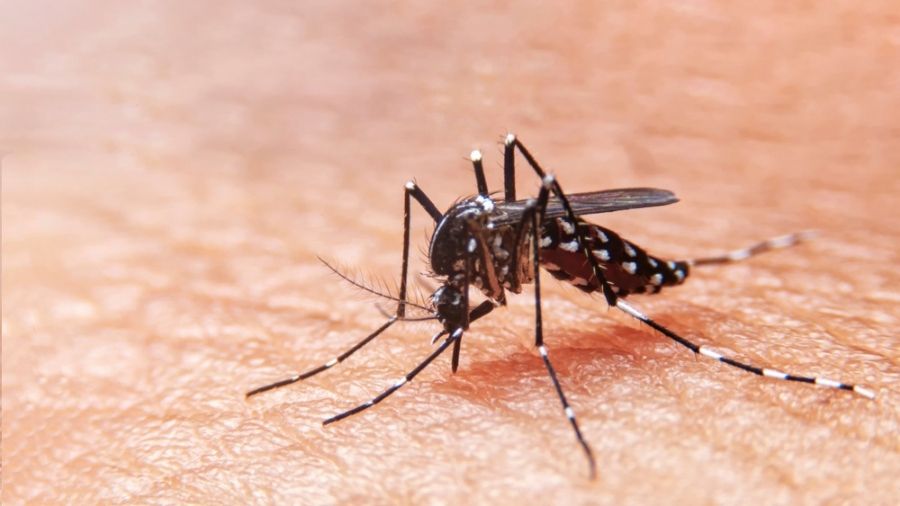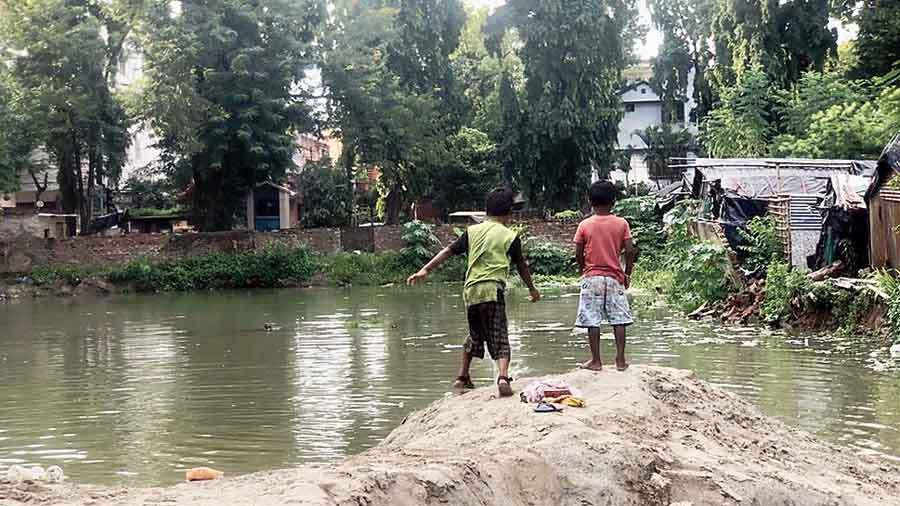A 37-year-old man from Kasba’s Haltu in south Kolkata died of dengue on Thursday.
The death certificate of Anurag Malakar, a resident of Purbachal Road North, mentioned dengue shock syndrome, sepsis and multi-organ failure as the reasons for his death.
He was admitted to Ruby General Hospital on Tuesday.
Local councillor (Ward 106) Arijit Das Thakur said the Kolkata Municipal Corporation (KMC) had served a notice to the family to clean a vacant plot — beside their house — which they own.
“The diagnostic centre where he tested positive for dengue did not notify the KMC. Ruby General Hospital informed us after he got admitted there,” said Das Thakur.
This was the fourth known case of death caused by dengue in Kolkata this year.
A 59-year-old woman from Haridevpur died of dengue on Sunday. A 40-year-old woman from Kasba passed away on Thursday.
Three deaths in the city within five days and a fast rise in infections have led many Kolkatans to ask whether enough is being done to keep dengue under control.
KMC officials said they were undertaking extensive awareness drives but residents said they did not see or hear about any such campaign in their neighbourhoods.
Vector-control work
Many Kolkatans complained that the gap between two visits by vector-control workers was too long to have any impact.
KMC officials said a place should be visited at least once a week.
Residents, however, said that almost never happened.
A resident of Patuli’s Q block said visits by vector-control workers were infrequent; a resident of Lake Gardens’s 58 plot said she had not seen any vector-control worker in months; a resident of Selimpur said the shortest gap between two visits was a fortnight.
It takes between eight and 10 days for an adult Aedes aegypti mosquito, the vector of the dengue virus, to emerge after laying of eggs, said Amlan Das, an associate professor of zoology at Calcutta University, who specialises in entomology.
Public health experts are urging people to throw away water from containers at least once a week to ensure there is no mosquito-breeding site.
Awareness campaign
A KMC official said on Friday that the principal mode of awareness campaign was handing out leaflets with dos and don’ts to prevent dengue.
Field workers are supposed to distribute leaflets during doorto-door visits to check mosquito breeding sites.
A number of Kolkatans, however, said the KMC’s field workers have not visited them in a long time.
Many people who live in apartment blocks said the field workers never left any leaflet with the security guards.
An official said awareness messages are also relayed from a roving autorickshaw in each ward, six days a week.
“The autorickshaws mostly move through main roads. Since they rarely go inside lanes and bylanes, they miss a large number of people,” said a resident of Kasba.
Large hoardings, which grab many eyeballs if placed in strategic locations, are also missing.
People’s responsibilities
KMC officials said complaints about waste lying uncleared on vacant plots often come from people who dump waste on such land.
Vacant or locked properties, they said, are potential mosquito breeding grounds.
Over the years, the KMC has been conducting awareness campaigns: through advertisements in mass media, hoardings and door-to-door visits.
Yet citizens allow water to accumulate on their terraces and in their surroundings, creating breeding grounds for mosquitoes, rued KMC officials.
“It is not possible for the government alone to keep the mosquito population in check unless people participate in the fight against dengue,” said an official.


